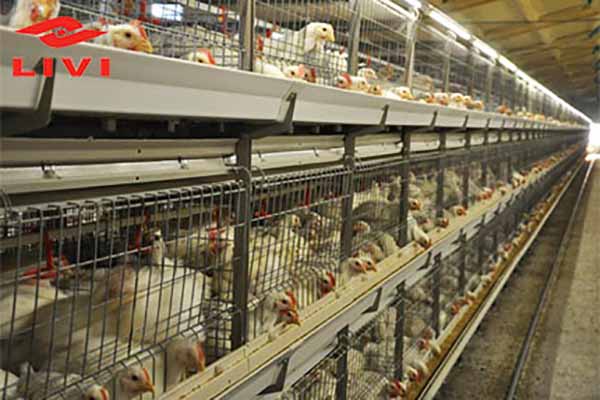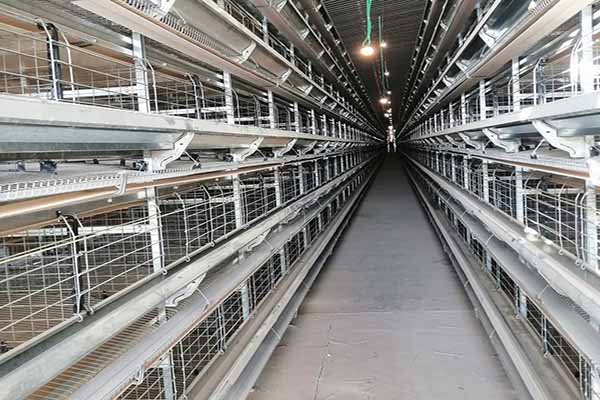How to Start a Commercial Chicken Farm: A Comprehensive Guide
Time : 2025-07-02
Starting a commercial chicken farm is a significant venture that requires careful planning, knowledge, and investment. Whether you’re looking to enter the poultry industry for the first time or expand your existing farm, this guide will provide you with a comprehensive overview of how to start a commercial chicken farm.
1. Market Research and Feasibility Study
Before diving into the world of commercial chicken farming, it’s crucial to conduct thorough market research and a feasibility study. This will help you understand the demand for chicken products in your area, identify potential competitors, and assess the profitability of your venture.
- Identify your target market: Determine who will be your primary customers – restaurants, grocery stores, or direct consumers.
- Analyze competitors: Study their farming practices, pricing strategies, and market share.
- Evaluate market demand: Assess the demand for different types of chicken products in your area.
- Conduct a SWOT analysis: Identify your farm’s strengths, weaknesses, opportunities, and threats.
2. Choose the Right Location
The location of your chicken farm is critical to its success. Here are some factors to consider when selecting a site:
- Proximity to customers: A farm close to your target market can reduce transportation costs and lead times.
- Availability of water and electricity: Reliable access to water and electricity is essential for farming operations.
- Soil quality: Good soil quality is crucial for growing feed crops and ensuring healthy chickens.
- Regulations: Check local and state regulations regarding agriculture and poultry farming in your chosen location.
3. Select the Appropriate Chicken Breed
Choosing the right chicken breed is crucial for the success of your commercial chicken farm. Different breeds have varying growth rates, feed conversion ratios, and meat quality. Consider the following factors when selecting a breed:
- Broiler breeds: These chickens are bred for fast growth and high meat yield. Examples include Cornish Cross, Ross, and Hubbard.
- Laying breeds: These chickens are bred for egg production. Examples include Leghorns, Australorps, and Orpingtons.
- Meat and egg hybrid breeds: These breeds offer a balance between meat yield and egg production. Examples include Hy-Line W-36 and Shaver.
4. Invest in Quality Equipment
Investing in high-quality equipment is essential for the efficient operation of your chicken farm. Here are some key pieces of equipment to consider:

- Brooder houses: These houses provide a controlled environment for chicks to grow until they reach a certain age.
- Feeders and waterers: Choose automatic feeders and waterers to ensure that your chickens always have access to food and water.
- Manure removal systems: Implement a manure removal system to maintain a clean and healthy environment for your chickens.
- Environmental control systems: Use fans, heating, and cooling systems to maintain optimal conditions in your chicken houses.
5. Develop a Farming Plan
A  well-thought-out farming plan is essential for the success of your chicken farm. This plan should include the following elements:
well-thought-out farming plan is essential for the success of your chicken farm. This plan should include the following elements:
- Brooding schedule: Outline the time frame for brooding chicks, including the temperature, humidity, and lighting requirements.
- Feeding schedule: Determine the frequency and type of feed your chickens will receive throughout their growth cycle.
- Health and disease management: Implement a biosecurity program to prevent the spread of diseases among your chickens.
- Manure management: Develop a plan for managing and disposing of chicken manure in an environmentally friendly manner.
6. Build Your Team
<p.Hiring a skilled and dedicated team is crucial for the smooth operation of your chicken farm. Consider the following roles when building your team:
- Chicken farmer: This is the primary role responsible for the day-to-day management of the farm.
- Feed mill manager: Oversee the production and distribution of feed for the chickens.
- Technical advisor: Provide expert advice on farming practices, biosecurity, and disease management.
- Quality control manager: Ensure that the chickens meet quality standards before they are sold to customers.
7. Establish Relationships with Suppliers and Customers
<p.Building strong relationships with suppliers and customers is vital for the success of your chicken farm. Here are some tips for establishing these relationships:
- Develop a reliable supply chain: Work with suppliers who provide high-quality feed, equipment, and other necessary materials.
<li.Foster customer relationships: Provide excellent customer service and maintain open communication with your customers.
<li.Negotiate favorable terms: Negotiate fair prices and payment terms with suppliers and customers.
8. Marketing and Sales Strategy
<p.Developing a robust marketing and sales strategy is essential for attracting and retaining customers. Consider the following strategies:
-
<li.Create a strong brand: Develop a brand identity that resonates with your target market.
<li.Use social media: Leverage social media platforms to promote your chicken farm and engage with potential customers.
<li.Attend trade shows and industry events: Build relationships with other poultry farmers and industry professionals.
<li.Promote your products: Offer samples, discounts, and other incentives to attract new customers.
9. Monitor and Adjust Your Operations
<p.As your chicken farm grows, it's important to monitor and adjust your operations to ensure continued success. Regularly review the following aspects of your farm:
- Production costs: Keep track of your expenses and look for ways to reduce costs without compromising quality.
<li.Farm efficiency: Continuously improve your farming practices to increase efficiency and productivity.
<li.Customer satisfaction: Gather feedback from your customers and use it to improve your products and services.
<li.Compliance: Stay up-to-date with regulations and ensure that your farm is in compliance with all applicable laws and standards.
10. Conclusion
<p.Starting a commercial chicken farm is a challenging but rewarding endeavor. By following this comprehensive guide, you can lay a solid foundation for your farm's success. Remember to conduct thorough research, invest in quality equipment, and build strong relationships with suppliers  and customers. With careful planning and dedication, your commercial chicken farm can thrive in the competitive poultry industry.
and customers. With careful planning and dedication, your commercial chicken farm can thrive in the competitive poultry industry.











